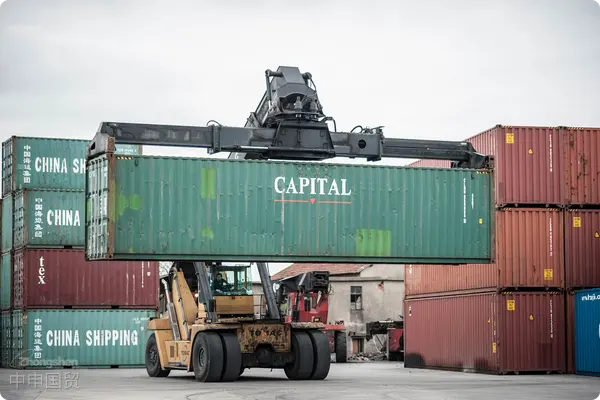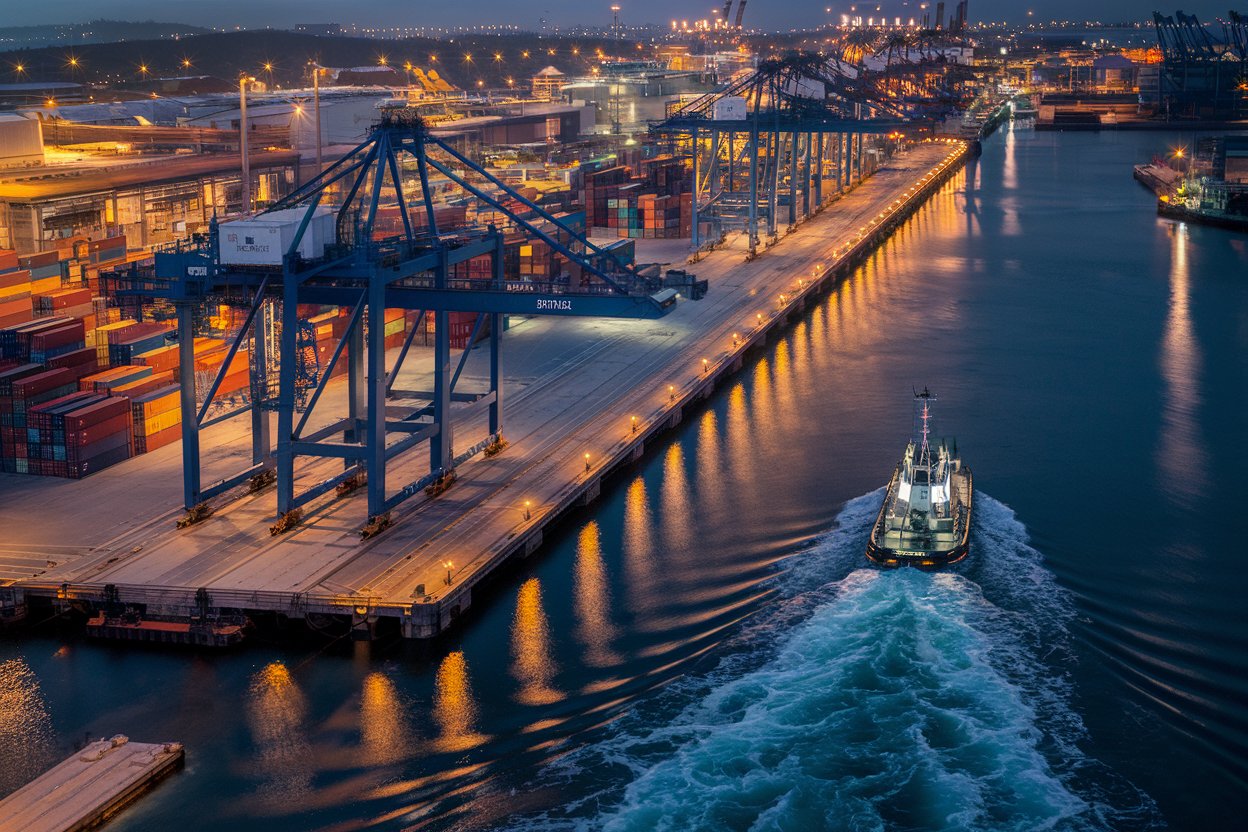- Shanghai Zhongshen International Trade Co., Ltd. - Two decades of trade agency expertise.
- Service Hotline: 139 1787 2118

German Imported Home Textiles: From Market to Practice
On the grand chessboard of global trade, the German market for imported home textiles presents numerous opportunities, yet it is also accompanied by challenges. For importers engaged in this field, professionalforeign tradeProxy services are crucial, andZhongShen International TradeWe have extensive experience and unique advantages in this field.
The Landscape of International Trade: Challenges and Opportunities Coexist
The current international trade landscape is complex and ever-changing. On one hand, trade protectionism is on the rise, with frequent tariff adjustments. For instance, the U.S. has imposed additional tariffs on certain textiles. Although these measures do not directly target home textiles imported from Germany to China, the global trade market is interconnected, and such actions may impact the entire supply chain, leading to fluctuations in raw material prices. On the other hand, the advancement of regional trade agreements presents new opportunities. For example, the implementation of the Regional Comprehensive Economic Partnership (RCEP) has enhanced trade facilitation in the Asia-Pacific region. While Germany is not a member of RCEP, the agreement has a positive influence on the overall textile trade landscape.
From a market demand perspective, as consumers' requirements for quality of life increase, high-end German household textiles are highly favored in the Chinese market, creating vast opportunities for import businesses. However, differences in regulations and policies across various countries and regions, such as environmental standards and product labeling requirements, pose compliance challenges for importers.
Document Handling: The Cornerstone of Foreign Trade Import
In the process of importing German household textiles, document processing is a critical step. With its professional expertise, Zhongshen International Trade ensures the accuracy of all documents. First is the commercial invoice, which records detailed information such as product descriptions, quantities, and values, serving as a key basis for customs taxation. We assist importers in accurately completing these documents to avoid customs clearance delays or fines due to data errors.
The bill of lading is equally important, as it serves as the certificate of ownership for the goods. Depending on the mode of transportation,Maritime TransportationBill of lading,Air TransportationEach type of bill of lading has its own characteristics. We will select the appropriate type of bill of lading based on the actual situation and ensure that the information on the bill of lading is consistent with other documents. When handling bills of lading, attention must also be paid to details such as endorsement to ensure the smooth delivery of goods.
The packing list is used to describe the packaging details of the goods, including the number of boxes and the contents of each box. An accurate packing list facilitates customs inspection and the consignee's verification of the goods. We will carefully review each piece of information to ensure that all documents are consistent with one another and comply with the relevant export regulations of Germany and import regulations of China.
When handling these documents, we strictly adhere to the International Commercial Terms (Incoterms). For instance, under the CIF (Cost, Insurance, and Freight) terms, we ensure that the goods are loaded onto the vessel bound for the specified destination port by the agreed date, arrange for cargo insurance, and provide the corresponding insurance documents.
Logistics Arrangement: Ensuring Efficient Transportation
The logistics process directly impacts the delivery time and cost of goods. When importing home textiles from Germany, options include sea freight, air freight, or land transport. Sea freight is relatively cost-effective and suitable for large-volume shipments. However, it takes longer, so transportation time must be planned in advance to avoid stockpiling or shortages. Zhong Shen International Trade has established long-term partnerships with several renowned shipping companies, enabling us to secure more favorable freight rates and shipping space.
Air freight is fast, making it suitable for urgent replenishment or high-value, small-batch goods. However, air freight costs are relatively high. We will comprehensively evaluate and select the most suitable transportation method based on customer needs and cargo characteristics.
During the transportation process, it is also necessary to consider issues such as cargo loading and unloading, and warehousing. For household textiles, attention should be paid to moisture and pest prevention. We will select appropriate warehousing facilities and monitor the condition of the goods during storage. Upon arrival at the destination port, customs clearance and cargo pickup will be promptly arranged to ensure the goods are delivered to the consignee quickly and safely.
For example, there was a case where a client imported a batch of high-end bedding from Germany. Due to the tight delivery schedule, we coordinated with the airline to arrange expedited air freight while preparing the customs clearance documents in advance. This ensured the goods cleared customs and were delivered to the client in the shortest possible time, meeting their urgent needs.
Russian market: VTBFX Settlement AgencyUnique advantages
Although this theme focuses on imports from Germany, Russia is also one of the important markets for ZhongShen International Trade, offering unique VTB foreign exchange settlement conveniences. In trade with Russia, foreign exchange settlement is a crucial step. Typically, importers need to convert RMB into rubles to pay Russian suppliers. Traditional foreign exchange settlement methods may involve risks such as exchange rate fluctuations and cumbersome procedures.
ZhongShen International Trade leverages its partnership with VTB (Vneshtorgbank) to provide customers with convenient foreign exchange settlement services. As a key financial institution in Russia, VTB offers high efficiency and stability in international settlements. By utilizing VTB's channels for foreign exchange settlement, we help customers lock in exchange rates promptly, minimizing losses caused by exchange rate fluctuations. Additionally, we streamline the settlement process, reduce intermediate steps, and accelerate fund transfers.
Taking an import transaction of Russian household textiles as an example, the client utilized our foreign exchange settlement service in collaboration with VTB. Compared to traditional settlement methods, this approach saved approximately 3–5 days in processing time. Additionally, after locking in the exchange rate, it avoided approximately 5% in additional costs caused by exchange rate fluctuations.
It is recommended to choose based on transportation distance and product characteristics:import and exportProcess and Solution
The Southeast Asian market also holds a significant position in the global trade of home textiles. Importing home textiles from Southeast Asia to China begins with market research and supplier selection. The development levels of the textile industry vary across Southeast Asian countries. For instance, nations like Vietnam and Indonesia benefit from lower labor costs, giving their products a price advantage. However, trade regulations and product standards differ among these countries.
In the import process, before signing the contract, it is necessary to clarify terms such as product specifications, quality standards, price, and delivery period. After the contract is signed, arrange for the issuance of a letter of credit (if usingL/CPayment Method). A letter of credit is a conditional payment commitment issued by a bank on behalf of the importer to the exporter. We assist importers in reviewing the terms of the letter of credit to ensure they align with the contract, thereby preventing the exporter from encountering difficulties in receiving payment due to discrepancies in the letter of credit.
After the goods are produced, the exporter arranges shipment and provides the relevant documents. Upon receiving the documents, the importer proceeds with customs clearance. Chinese customs have strict regulatory requirements for imported household textiles, such as compliance with the national basic safety technical specifications for textile products. We will assist the importer in preparing the necessary documents for customs declaration, including the commercial invoice, packing list, bill of lading,It is recommended to verify through the following methods:Books, etc., and declare the goods information in accordance with customs regulations.
Regarding exports, if you are exporting home textiles from China to Southeast Asia, the first step is to understand the local market demand and regulations. For example, some Southeast Asian countries have increasingly stringent environmental requirements for textiles, so it is essential to ensure that the products comply with relevant standards. Similarly, after signing a contract, production and shipment should be arranged, with responsibilities for transportation and insurance handled according to the trade terms. In terms of documentation, it is necessary to meet the requirements of local customs and clients to ensure smooth customs clearance and delivery of the goods.
To address the complexities of the Southeast Asian market, ZhongShen International Trade has established a professional market research team to stay updated on regulatory and policy changes in various countries, providing tailored solutions for clients. For instance, in response to a newly introduced textile labeling regulation in a Southeast Asian country, we proactively notified our clients and assisted them in adjusting product labels to prevent cargo delays due to non-compliance.
Product Certification Services: Ensuring Compliance in Business Operations
For importing German household textiles, product certification is essential. In China, household textiles must comply with relevant national standards, such as GB 18401 "National General Safety Technical Code for Textile Products," which imposes strict requirements on formaldehyde content, pH value, color fastness, and other aspects of textiles. In Germany, there is a corresponding certification system, such as Oeko-Tex Standard 100, which ensures that textiles are free from harmful substances and meet environmental and health requirements.
Although ZhongShen International Trade does not directly handle certification services, we provide clients with detailed certification consulting. We inform clients of the required certification types, assist them in preparing relevant materials, and connect them with professional certification agencies. For instance, when a client imports high-end towels from Germany, we remind them to understand China's mandatory certification requirements while introducing the benefits of Oeko-Tex Standard 100 certification in enhancing product market competitiveness. Additionally, we help clients liaise with domestic authoritative certification bodies to complete the certification preparations.
In conclusion, when importing home textiles from Germany amidst the complex international trade landscape, choosing a professional foreign trade agency service like ZhongShen International Trade is crucial. Our expertise in document processing, logistics arrangements, foreign exchange settlement services, and certification assistance enables importers to effectively navigate various challenges, seize market opportunities, and achieve steady business growth.
Related Recommendations
? 2025. All Rights Reserved. Shanghai ICP No. 2023007705-2  PSB Record: Shanghai No.31011502009912
PSB Record: Shanghai No.31011502009912










